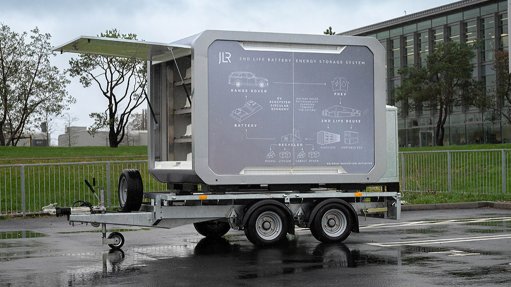Death of a dream
A couple of months back, I waxed lyrical about an initiative to nurture Africa’s high-end information technology talent for placement with global tech companies. Its beauty, I wrote, was that the youngsters who were taken on board were not required to leave the continent’s shores but worked out of offices in the major cities of Nigeria, Kenya, Rwanda, Uganda, Ghana and Egypt, thus avoiding a brain drain.
I have just come across bad news about the initiative, which is called Andela, after our own Nelson Mandela, and was launched in 2014 by American entrepreneurs in partnership with a Nigerian citizen.
I will return to the disturbing news; in the meantime, here is the low-down on the programme: it involves training brilliant young Africans who typically hold a computer science degree at Andela’s offices in Africa before they are hired out to the world’s tech giants as software engineers. Unlike the traditional outsourcing model, the Andelas – as they are called in Andela circles – are tightly integrated into the operations of their clients and are hired for set periods, rather than specific projects.
Andela is certainly no Mickey Mouse venture. Its investor base includes Facebook billionaire Mark Zuckerberg, tennis sensation Serena Williams and former US Vice President Al Gore’s Generation Investment Management, which came on board in January, ploughing in $100-million. This brought the capital haul to date to $180-million.
Now for the bad news: this breeding ground for African budding software engineers has announced a restructuring of its ‘talent pipeline’ to meet changing market demand. The change will result in the immediate departure of 250 junior software engineers from the company’s Nigeria and Uganda hubs, while 170 of their counterparts in Kenya will potentially also be affected. The company will halt its training programme in the three countries.
The retrenchments have been necessitated by a change in focus. Andela, which has hitherto been engaged in training mostly junior-level software engineers, says it has become apparent that this approach is not meeting market needs for more senior staff. Thus, it will be embarking on a drive to recruit 700 more experienced software engineers by the end of next year.
To its credit, Andela, which styles itself as a social enterprise, has not left the youngsters affected by the lay-offs in the lurch. It is partnering with entities in the three African countries to help connect the now jobless junior software engineers with opportunities in their local communities. Andela and the three entities have already identified 60 companies that are looking to hire highly capable junior software engineers. The entities will also offer the retrenchees the opportunity to use their co-working spaces free of charge for three months.
Further, Andela has given the assurance that it will continue to invest in the Andela Learning Community, which it says has introduced more than 30 000 learners from across the continent to software engineering. More than 100 000 engineers are expected to take advantage of programmes within the community in the next three years.
All these efforts are commendable, but it would have been nicer if Andela was in a position to continue providing mentorship and placement with the tech giants of this world. Africa’s computer engineering ecosystem is very small – in fact, so small that it will be able to absorb only a tiny fraction of the 100 000-plus engineers that will benefit from programmes offered by the Andela Learning Academy during the next couple of years.
The mentoring provided at the Andela hubs was invaluable. The trainees, many of whom had not had a formal job before, also had an opportunity to earn decent money. Okay, they got only a third of the fee the companies they were hired out to paid, with the balance going to Andela. Their take-home pay equated to about $4 000 – or R60 000 – a year. This works out to R5 000 a month, which is not so bad for someone undergoing training. And after completing their training, they stood a chance to earn anything up to $40 000 a year.
The end of the outsourcing programme for junior software engineers is indeed the death of a dream.
Comments
Press Office
Announcements
What's On
Subscribe to improve your user experience...
Option 1 (equivalent of R125 a month):
Receive a weekly copy of Creamer Media's Engineering News & Mining Weekly magazine
(print copy for those in South Africa and e-magazine for those outside of South Africa)
Receive daily email newsletters
Access to full search results
Access archive of magazine back copies
Access to Projects in Progress
Access to ONE Research Report of your choice in PDF format
Option 2 (equivalent of R375 a month):
All benefits from Option 1
PLUS
Access to Creamer Media's Research Channel Africa for ALL Research Reports, in PDF format, on various industrial and mining sectors
including Electricity; Water; Energy Transition; Hydrogen; Roads, Rail and Ports; Coal; Gold; Platinum; Battery Metals; etc.
Already a subscriber?
Forgotten your password?
Receive weekly copy of Creamer Media's Engineering News & Mining Weekly magazine (print copy for those in South Africa and e-magazine for those outside of South Africa)
➕
Recieve daily email newsletters
➕
Access to full search results
➕
Access archive of magazine back copies
➕
Access to Projects in Progress
➕
Access to ONE Research Report of your choice in PDF format
RESEARCH CHANNEL AFRICA
R4500 (equivalent of R375 a month)
SUBSCRIBEAll benefits from Option 1
➕
Access to Creamer Media's Research Channel Africa for ALL Research Reports on various industrial and mining sectors, in PDF format, including on:
Electricity
➕
Water
➕
Energy Transition
➕
Hydrogen
➕
Roads, Rail and Ports
➕
Coal
➕
Gold
➕
Platinum
➕
Battery Metals
➕
etc.
Receive all benefits from Option 1 or Option 2 delivered to numerous people at your company
➕
Multiple User names and Passwords for simultaneous log-ins
➕
Intranet integration access to all in your organisation


















